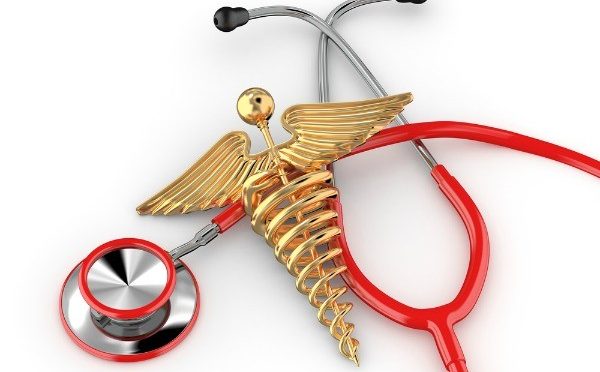The Marijuana Policy Project promotes their drug as a substitute for opiate pain pills. Like the worst offenders in the opiate industry, the cannabis lobby follows an addiction-for-profit business model. Their master plan needs 80% of the demand to be met by 20% of the users. Science shows no evidence for using medical marijuana as a substitute for pain pills.
Governor David Ige of Hawaii wisely refused to cave to lobbyists, and he vetoed a measure that would have allowed medical marijuana to treat opiate addiction.
A large-scale, major study from Australia demonstrates that cannabis doesn’t work as a substitute for opiate pills in instances of chronic, non-cancer pain. The study came out in July, 2018 and it supports the findings of an American study published in September, 2017.
The three-year research study by Olfson, Wall et. al., Cannabis use and the Risk of Prescription Opioid Use Disorder, 2018, concluded: “Cannabis use appears to increase rather than decrease the risk of developing nonmedical prescription opioid use and opioid use disorder.” More than a year ago, Dr. Ken Finn, professional advisor to Parents Opposed to Pot, published Current Research on Marijuana in Pain is lacking.
It seems we should NOT be encouraging “medical” marijuana use if our goal is to stop addiction. Theodore Caputi and Keith Humphreys recently published in the Journal of Addiction: Medical marijuana users are more likely to use prescription drugs medically and nonmedically. They concluded: “Medical marijuana users should be a target population in efforts to combat nonmedical prescription drug use.” See our page on Marijuana vs. Pain Pills.
Cannabis is the not the fix for PTSD
If those who struggle with PTSD use marijuana, they prolong their PTSD and jeopardize recovery. As for soldiers with PTSD, Wilkinson’s study from Yale explains the long-term prognosis. Cannabis makes soldiers with PTSD more violent than they be otherwise and less likely to recover. Sue Sisley’s study – promoted by Dr. Sanjay Gupta — is unnecessary.
New studies published this year examine the role of marijuana in PTSD treatments. Acknowledging that patients with PTSD are two to four times more likely to have a substance-use disorder than people without the condition, as previous studies have shown, new studies examine the role of marijuana in PTSD treatments. The studies, published this year, find:
- Patients who use or have a long history of using marijuana were almost twice as likely to drop out of both treatments;
- Patients with a history of marijuana-use disorder were more likely to see less improvement of their symptoms.
For more information, please read: Michele Bedard-Gilligan et al. Alcohol, cannabis, and other drug use: Engagement and outcome in PTSD treatment, Psychology of Addictive Behaviors (2018), and Quang A. Le et al. Effects of treatment, choice, and preference on health-related quality-of-life outcomes in patients with posttraumatic stress disorder (PTSD), Quality of Life Research (2018).
Major Science Organizations in US, Canada don’t show good evidence for marijuana
The National Academy of Sciences study gave some credible evidence that marijuana can treat 3 conditions, but it also warned that marijuana can trigger a heart attack, or schizophrenia. The NAS report said their authors reviewed 10,000 studies and kept 100 of the most significant studies to arrive at their conclusions. The sheer number of studies involving marijuana cast doubts on claims that marijuana has not been adequately studied.
The Canadian Family Physicians wrote an editorial about Medical Marijuana in February, 2018, p. 87, after devoting an entire issue to the journal on medical marijuana. Like the NAS report in the United States, the Canadian physicians reviewed hundreds of relevant studies. In the editorial, they concluded:
“Evidence indicates the most consistent effects of medical cannabinoids are adverse events. A variety of adverse events have a greater magnitude of effect than the potential benefits for the conditions targeted.
Read the Clinical Conundrum of Medical Marijuana for more information. Dr. Ken Finn treats pain patients at of Springs Rehab in Colorado Springs. He advises that there are more than 600 drug interactions with medical marijuana. Are any medical marijuana dispensaries giving these warnings? Another Colorado doctor who advocates marijuana for pain recently stated that marijuana edibles and concentrates should be banned.
Let’s Replace Harm Reduction with Drug Abstinence
Changing drug policy is the linchpin of billionaire George Soros’s ideology. Soros has donated billions to Open Society, Drug Policy Alliance, ACLU and legalization campaigns to promote legalization of all drugs — starting with marijuana. His groups advocate for harm reduction and do not believe in prevention or abstinence but in minimizing harms of drug use.
Harm reduction began to dominate federal drug policy while pharmaceutical companies aggressively pushed opioids. The USA developed an unprecedented addiction epidemic, and drugs now kill more than twice the number of people who die by gun violence. Because Open Society funds academics who need to be consistent with Soros’s philosophy, bias towards these views is not likely to change.
Another billionaire, Peter Lewis gave money to the Brookings Institution with strings attached: promote scholarship to change the public’s view of marijuana. The Koch Brothers finance Libertarian ideas, which are generally sympathetic to the freedom to use drugs.
Sean Parker gave $9 million to legalize marijuana in California in 2016. Naively (or cynically?), he thinks legalizing the drug is a social justice issue.
National Families in Action researches all donations of billionaires who fund medical marijuana and legalization campaigns. http://www.drugfreeidaho.org/Tracking_the_Money_Thats…
In short, there’s no evidence that medical marijuana can cut the opiate epidemic and death. There is evidence that it will add to the aggressive marketing of addiction. Hilary Bricken, a cannabis attorney in Los Angeles, explained the industry. “Cannabis has learned from Big Pharma, Big Alcohol and Big Tobacco that they have to step up in this way. They would be stupid to not do what’s worked for the industries that came before them.”

